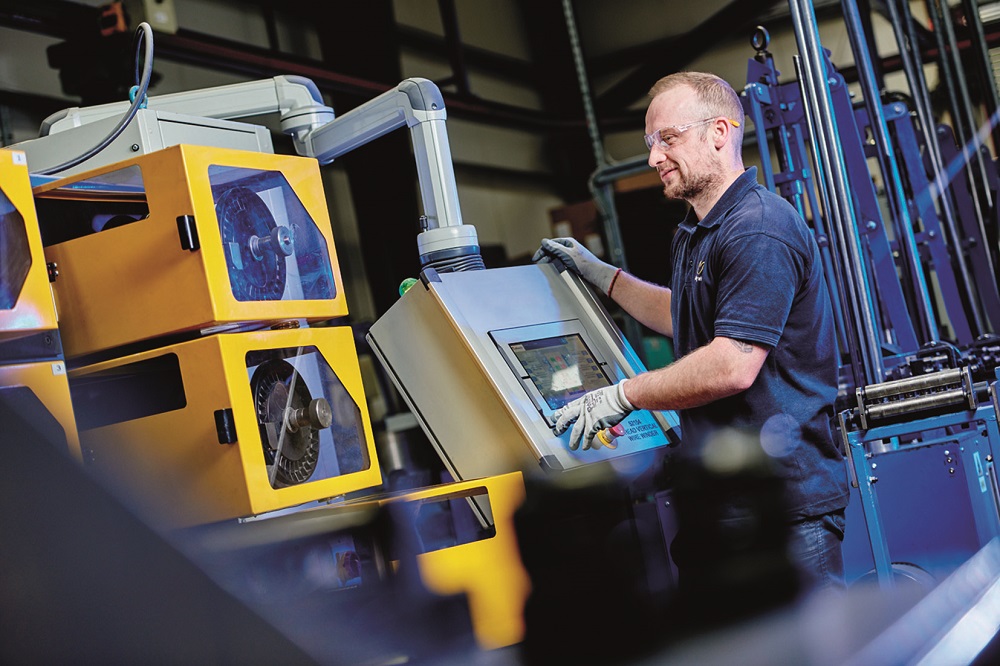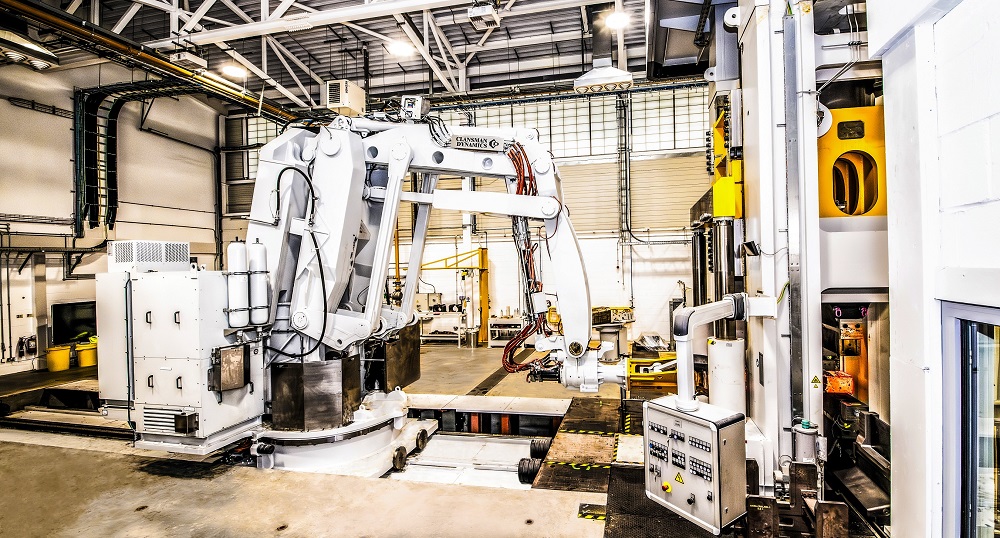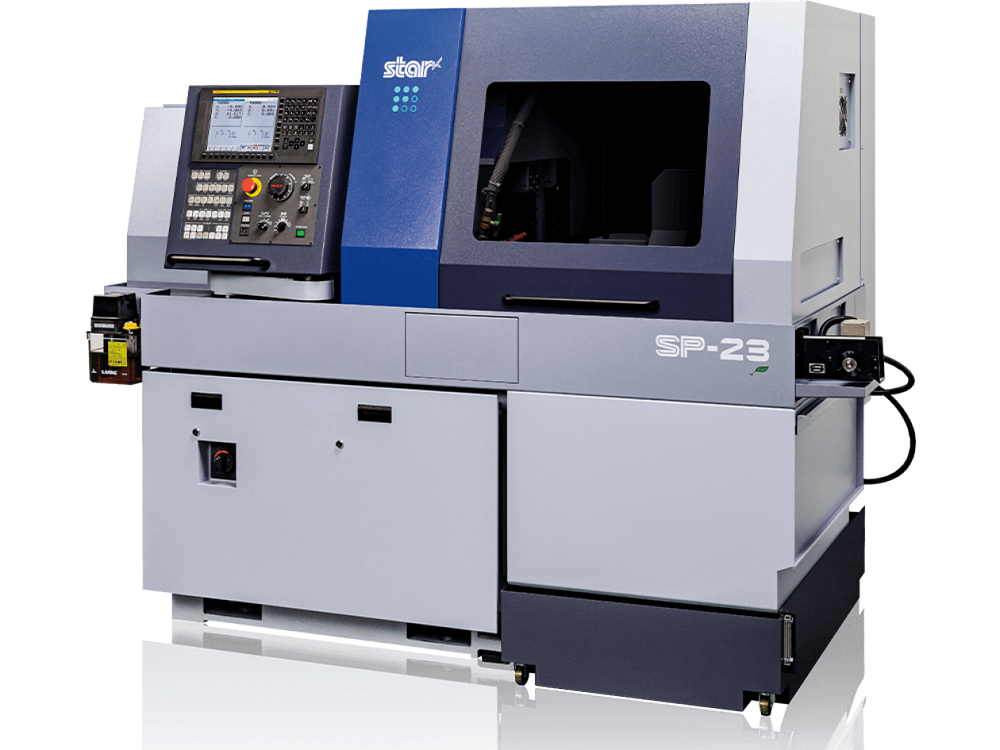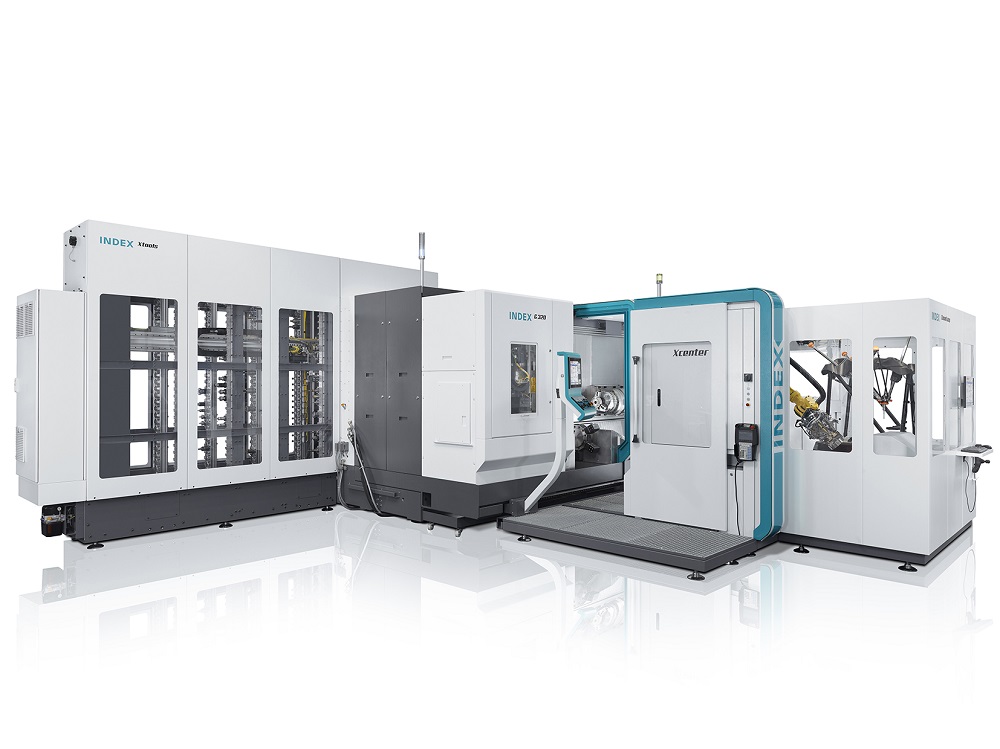Star Micronics GB will showcase its range of sliding-headstock lathes at MACH 2024 (15-19 April, NEC, Birmingham). Visitors will experience a host of process demonstrations and witness a range of complex mill-turn components in production live at the event.
Following its worldwide debut at the EMO exhibition in Germany last September, the new SP-23 sliding head lathe will make its debut appearance at a UK manufacturing exhibition. An entirely new model capable of 1-inch (25.4 mm) machining, Star says the SP Series delivers outstanding versatility and performance within a modest footprint.
The SP-23 features an eight-station front turning platen and a seven-spindle cross-drilling inner tool post, on which it is possible to mount a wide variety of tooling attachments with five cartridge positions available. The machine features five drilling stations on the front and a four-station back-working platen with power tool capability.
Another key development within the Star portfolio, the new SD-26 Type E occupies the middle ground between the supplier’s 20 and 32mm bar diameter ranges. Capable of processing 26mm diameter material, the machine offers a programmable B1 head with four front and four rear facing tool positions, plus an additional six cartridge positions for various attachments.
Superseding the SB-16II Type E, the upgraded third-generation SB-16III model utilises the latest-generation FANUC 0i-TF Plus CNC control system. The machine includes Star’s dovetail structure for the Yaxis and features a fully programmable Caxis on both the main and sub spindles. Notably, the main spindle platen includes six turning tools, two fixed high-speed ER11 spindles for cross working, plus a further three modular cross power-driven stations that can accept a variety of cartridge attachments.
For further information www.stargb.com



















